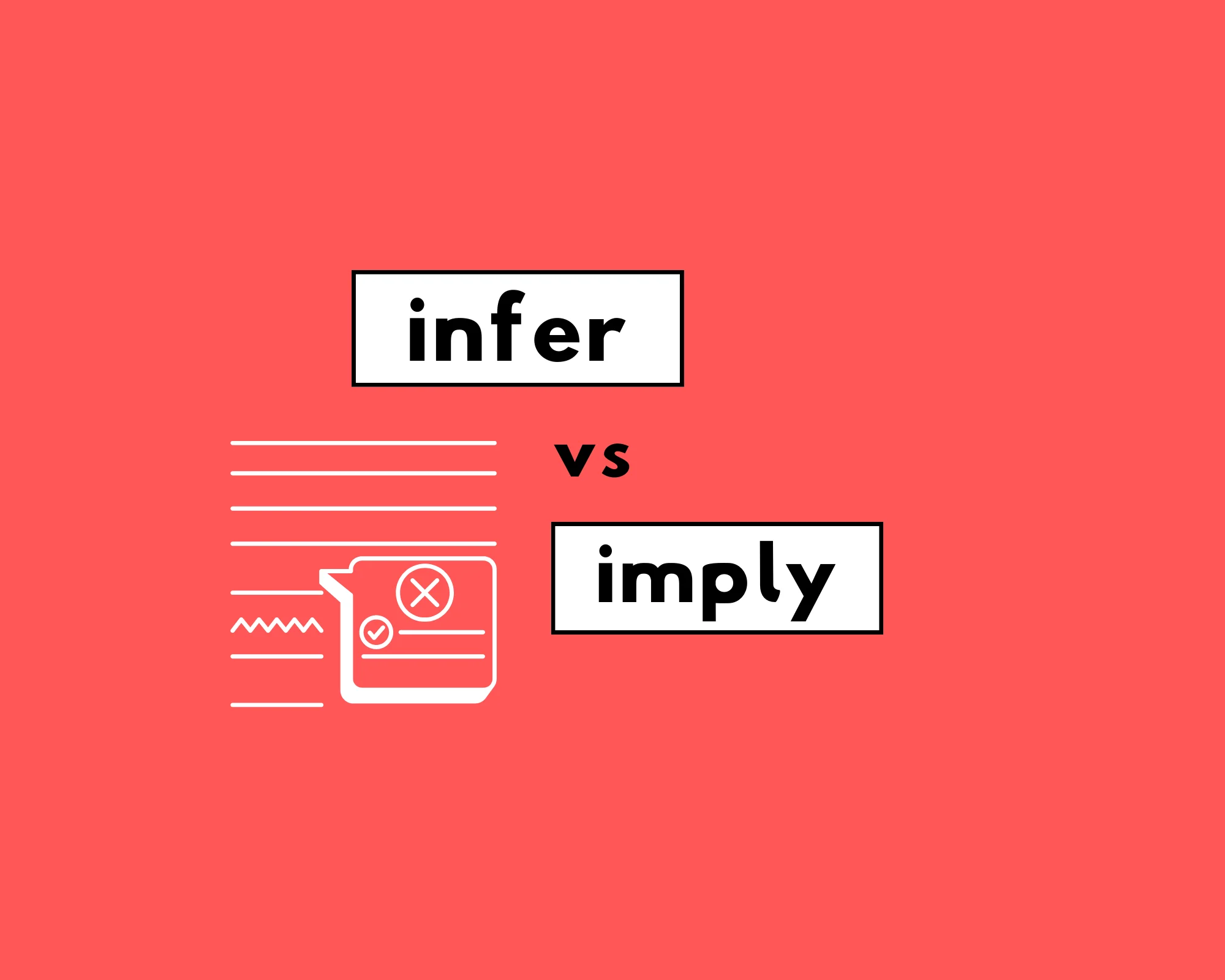Contents
Toggle
Infer vs. imply
Infer and imply are distinct words with opposite meanings—be sure not to confuse them in conversation or writing.
When to use infer vs. imply
To infer is to, “form an opinion about something that is based on information that you already have”. (MacMillan Dictionary, infer.) E.g., “You can infer the meaning of the word from the sentence context.”
To imply, on the other hand, is “to suggest that something is true or that you feel or think something, without saying so directly; “I disliked the implied criticism in his voice”.
What are “inferences”?
Inferences, and our capacity to make them is its own branch in philosophy and logic. Deductive, abductive and inductive reasoning all have to do with the ability to draw conclusions based on inferences that are made in arguments.
For example, to use deductive reasoning would be to make an inference based on generally accepted premises, and infer (or arrive at) a conclusion from those grounds.
All men are mortal.
Jack is a man.
Therefore, Jack is mortal.
We can deduce that Jack is a man from other generally accepted truths, i.e., all men are mortal; Jack is a man; therefore, Joe is mortal.
When to use “infer” or “imply”
These words are easily confused with each other, and it could have something to do with the fact that both are mental processes that can happen mid conversation.
Imply means to hint at something without explicitly stating it or addressing it head-on. Another way to put it is that by implying something you are saying it indirectly, or alluding towards it.
The reporter’s article implied the CEO was not completely innocent in the company’s scandal.
Are you implying that my son cheated on his test?
I didn’t mean to imply that your grasp on grammar is bad.
In both sentences, imply could be substituted with words or phrases like, indirectly says, suggesting or hinting at. They all mean that something was not explicitly stated, but is implicit, (which is the adjective form of imply).
So, if any of those other words fit in the context, then the correct word is imply. In other words, it was implied, which is the past simple tense of the base verb imply.
The verb infer works differently. To infer something, or to make an inference, is to arrive at a conclusion based on information presented or gathered. We infer based on what others say, or what evidence suggests.
To imply is active, and is something we sometimes do in speaking or communicating with others; despite perhaps not being aware of this ourselves. To infer is often more passive in the regard that we receive information, and can infer or make an inference on those grounds.
“Imply” / “infer”, used in sentence examples
| Examples: “imply’ used in sentences |
| I didn’t mean to imply that your grasp on grammar is bad. He didn’t make any promises, but he did imply that he’d be back for the holidays. Even at face value, well-intentioned repairs surely imply why repairs were necessary. (Chicago Tribune) I’m not implying anything about your cooking, but could we eat out tonight? |
| Examples: “infer’ used in sentences |
| You can infer the meaning of the word from the context of the rest of the sentence. You can infer which variable affects which outcome. And perhaps we may infer that no similar attempt can be more successful. Can we then infer any certainty at all? Am I right to infer that you think my grammar is bad? |
Synonyms for “imply”
Synonyms for “infer”
- guess
- ascertain
- assume
- intuit
- deduce
- derive
- figure out
- glean
- speculate
- surmise
- suppose
- read between the lines
- draw an inference or conclusion
- conjecture
- stipulate
Origin of infer & imply
The verb infer derives from the Latin inferre, “to carry in, enter, introduce, inflict.” The verb imply derives from the Latin implicāre.
In review: infer and imply
To infer is to deduce or come to a conclusion based on evidence or information presented. To imply is to insinuate or suggest something, either through tone of voice, body language and/or choice of words during conversation or text.
Read about other commonly confused words
Sources










